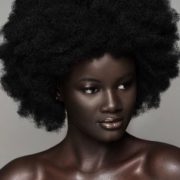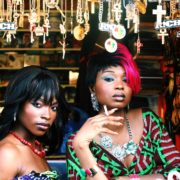Internet Culture: The Reason Why Nella Rose Should Not Be Cancelled For Colourist Tweets. [@NellaRose]
Colourism is a psychological war on black people that we have only just begun to fight back.
Over the last week, UK influencer Nella Rose was “exposed” on twitter by an unknown source for making colourist comments in the past against dark-skinned black women. The YouTube and Social Media starlet faced extensive backlash for her tweets dating back as early as 2012. Although having since apologised, Nella Rose, who has an audience that is made up of majority black women and girls, has faced the loss of almost 70,000 followers in just a matter of days. Many of these former fans are disappointed that this black beauty and fashion influencer, who was once a source of great inspiration and representation for them, has now been revealed as a woman who has not always been proud to uplift dark-skinned black women.
When I first saw the tweets that had resurfaced, I was neither shocked or outraged. Between 2011 and 2016 (before the release of Beyoncé’s Lemonade) it was a bad time to be a black woman, especially a teenage black girl on social media – hormones going crazy, insecurities at an all-time high, and learning to deal with micro-aggression racism in a country where you are significantly under-represented in the media. It was a difficult time to love the skin you were in when it seemed like the whole world wanted to do everything in its power to make you feel invisible. It was even more heartbreaking when black boys and men would take to social media to express their disdain for dark-skinned black women especially.
If you are a black woman reading this article, I would like you to do a quick exercise with me called “How Many Times”.
How many time have you heard, “You’re Pretty For A Dark Skinned Girl”.
How many times have you heard, “The reason I date light-skinned women, is because [insert derogatory comment about dark-skinned women here]”.

As a teenage girl, I would see incredibly disrespectful tweets against black women all over social media. Dark-skinned black women were on many occasions compared to cockroaches and animals. It seemed that everywhere I looked, we were the butt of the joke. In popular film and media, we were never the hero or the love interest, but rather the hyper-masculine, angry side-kick of our lighter best friend who represented the ideal black woman. We did not grow up watching Issa Rae and Lupita N’Yongo on our screens but instead were made to live in the shadows of lighter women whilst watching black men, who look like us, ridicule us in order to uplift themselves. So am I surprised by Nella Rose admitting in her apology video that she was, “ashamed of being African” when bullied in school for her full lips and textured hair. Absolutely not! Because I think a lot of dark-skinned girls felt the exact same way.
The bigger conversation that needs to be had here is the topic of colourism that we have ALL internalised as a community. The definition of colourism is prejudice or discrimination against individuals with a dark skin tone, typically among people of the same ethnic or racial group. Colourism is something that affects all black people of the diaspora, especially in countries where black people are the minority, or in a country where there is a history of slavery or colonialism. It is an extension of white supremacy that dates back to as early as the 18th century, where plantation owners would often use colourism as a tactic to divide and control enslaved African people. Colourism is a psychological war on black people that we have only just begun to fight back.

There is a reason why over the last few years, there has been a huge surge of pride and celebration amongst black women of themselves. With Marvel’s Black Panther and Lena Waithe’s Queen & Slim, we are finally seeing ourselves on screen, just as we are. It is a validation that lets us know that we are here, that we matter and that we are alive. We are so multi-faceted and I believe that UK influencers like Nella Rose, who are a minority in the grueling world of fashion and beauty blogging, have played a big part in black girls feeling beautiful, proud, and represented. This young woman has done more to fight against colourism and racism than the cowardly men and women who benefited from the degradation of black women. Nella Rose should not be punished for comments that reflected her internalised self-hate as a teenager while she was still navigating her identity. Hurt people, hurt people – and there are many black girls just like her who did not end up spearheading the movement of self-love as she does. I accept her apology and urge that we take care to ensure that cancel culture does not lead to the detriment of this amazing woman’s happiness and mental health.
Check out the GUAP Arts & Culture section, to discover new art, film, and creative individuals.




![ZINO VINCI’S ‘FILTHY & DISGUSTING’EP BRINGS YOU TO THE CORE OF THE ARTIST [@ZinoVinci]](https://guap.co/wp-content/uploads/2023/10/Zino-4.jpg)




